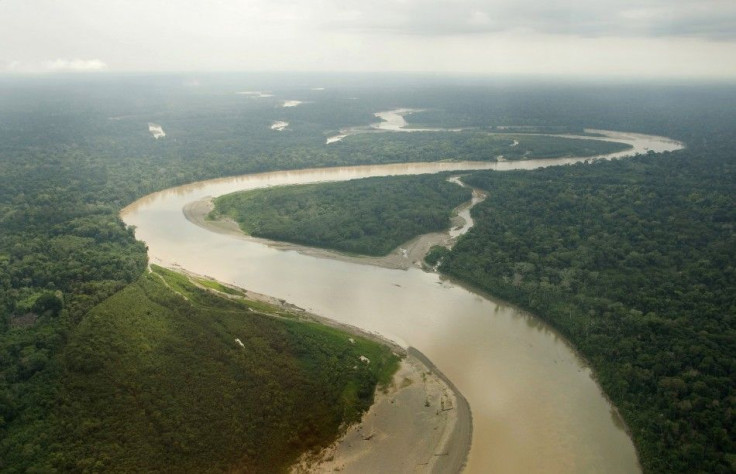Cutting Down Tropical Forests Means Less Rain, Study Says

The loss of tropical forests disturbs not only the local ecosystem, but has a ripple effect that can result in less rainfall hundreds of miles away, according to new research.
In a study published in the journal Nature on Wednesday, a team led by University of Leeds researcher Dominick Spracklen analyzed satellite data on tropical precipitation and vegetation to figure out how forests affect rainfall - and how deforestation affects it as well.
They found that the air that passes over large rainforests produces twice as much rain or more as air that passes over deforested areas.
But how do trees encourage rain to fall?
"Trees release moisture into air through a process called evapotranspiration," Spracklen said in a phone interview. Thanks to the team's observations, "we found that this process keeps the air over forests moister."
The moist air from over the rainforest can travel for days, sometimes resulting in precipitation thousands of miles away, according to the paper. The importance of rainforests also isn't limited to South America; Spracklen and his colleagues found that forests in the Congo mediate the rainfall of the surrounding basin area.
Based upon current trends of deforestation in the Amazon, Spracklen and his team estimate that rainfall in the Amazon basin will decline by 12 percent in the wet season and 21 percent in the dry season by 2050.
"Such a reduction in precipitation may have consequences for the future of remaining Amazonian forests and for rainfall-reliant industries both within and outside the Amazon basin, including agriculture and hydroelectric power generation, which contribute substantially to South American economies," Spracklen and his colleagues wrote.
Deforestation rates globally have remained about the same since the 1970s and 1980s, though the rate in Brazil has dropped by a factor of 2 or 3 over the past few years, according to Spracklen.
However, there is some debate as to whether this slowing of deforestation is primarily due to increased preservation efforts by the Brazilian government or to a soft market for commodities like soybeans and beef. If prices for those products pick up, it's possible that more of the rainforest in Brazil could fall under the axe.
"Our work highlights the need to protect large amounts of tropical forests to maintain rainfall," Spracklen says.
SOURCE: Spracklen et al. "Observations of increase tropical rainfall preceded by air passage over forests." Nature published online 5 September 2012.
© Copyright IBTimes 2024. All rights reserved.




















